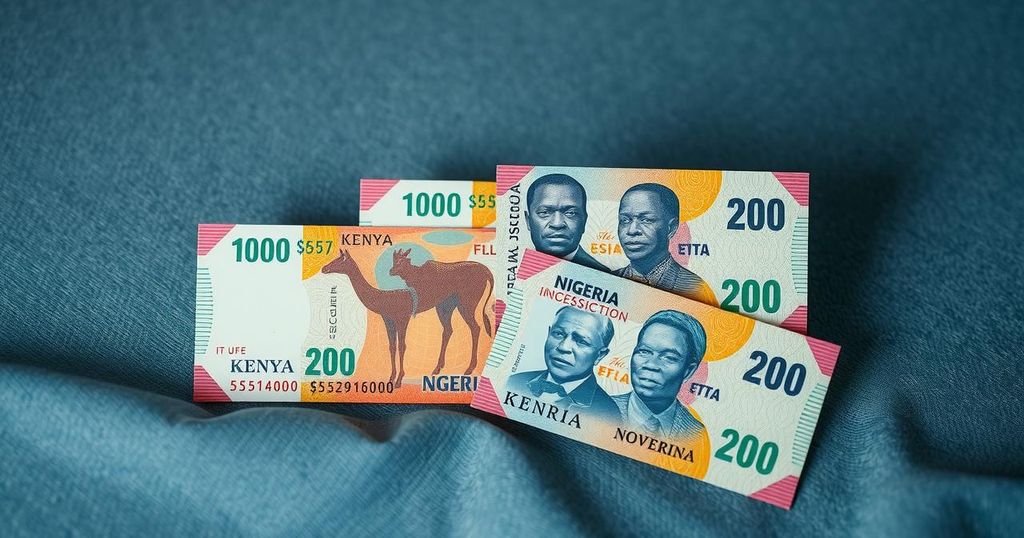Kenya, Nigeria, and Zambia’s currencies are expected to weaken due to increased dollar demand. Ghana’s cedi may stay stable with central bank support, while Uganda’s shilling could appreciate ahead of tax payments. Economic pressures drive varying currency performance across these nations.
The currencies of Kenya, Nigeria, and Zambia are projected to experience downward pressure over the upcoming week, while Ghana’s currency remains stable and Uganda’s might appreciate against the dollar, according to traders.
In Kenya, the local currency, the shilling, is expected to weaken as banks distribute dividends from the previous year. Currently, the shilling is quoted at 129.30/129.50 to the U.S. dollar, rising from last week’s 129.00/129.40. A trader expressed concern, stating that increased demand for dollars by foreign investors could lead to further depreciation if the central bank does not intervene.
Nigeria’s naira is likely to decline in both official and parallel markets due to heightened demand for foreign currency surpassing the central bank’s supply efforts. Intraday trading on Thursday showed the naira fluctuating around 1,550 to the dollar, a decrease from the previous week’s closing quote of 1,520. Traders noted that rising dollar demand has disrupted previously stable rates, cautioning that rates may continue to drop unless supply improves.
Conversely, Ghana’s cedi is expected to maintain its stability, bolstered by support from the central bank. As of Thursday, the cedi remained at 15.45 to the dollar, consistent with the previous week’s closing rate. Chris Nettey from Stanbic Bank emphasized the matched supply and demand, suggesting that the cedi’s stability is likely to persist in the near term.
In Uganda, the shilling may gain strength as businesses prepare for mid-month tax payments. The currency was quoted at 3,662/3,672 to the dollar, slightly improved from last week’s 3,665/3,675. A trader predicted diminishing demand for dollars from large firms fulfilling their tax obligations, which could bolster the local unit’s position.
Zambia’s kwacha is anticipated to remain weak due to increasing demand for foreign currency coupled with limited supply. The kwacha was quoted at 28.58, a decline from 28.70 the prior week. Access Bank indicated that while foreign currency conversions could mitigate rapid depreciation, they may not lead to any significant recovery.
In summary, the currencies of Kenya, Nigeria, and Zambia are likely to experience depreciation due to various economic pressures, including increased demand for foreign currency. In contrast, Ghana’s cedi shows potential for stability, while Uganda’s shilling might strengthen due to tax-related demand. The overall outlook suggests varied movements across different African currencies, with indications for central bank interventions as potentially critical in stabilizing their respective markets.
Original Source: www.tradingview.com






